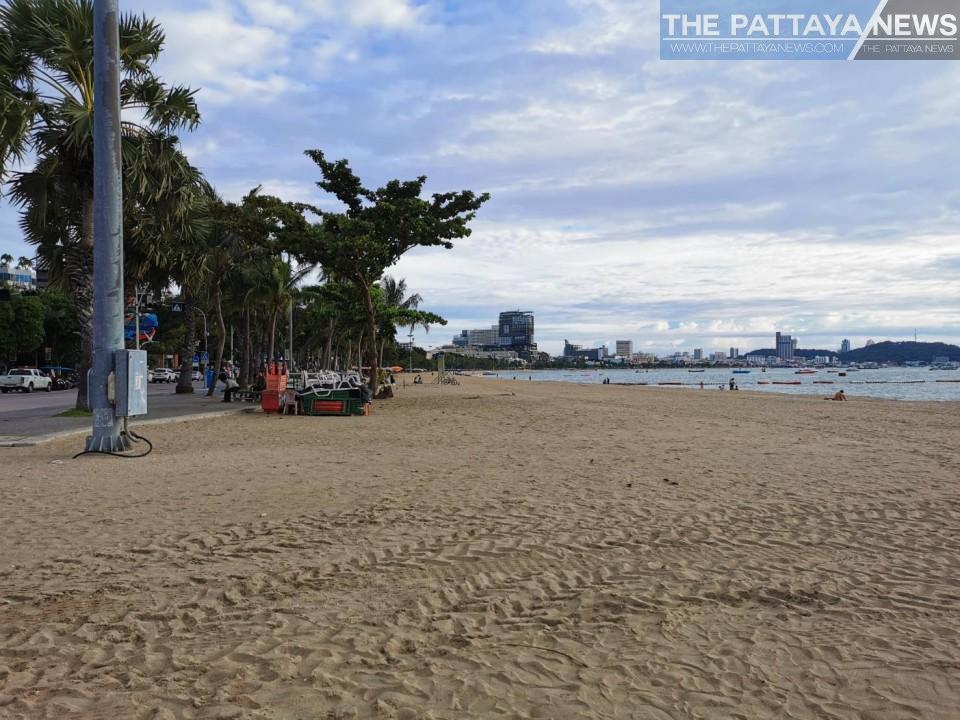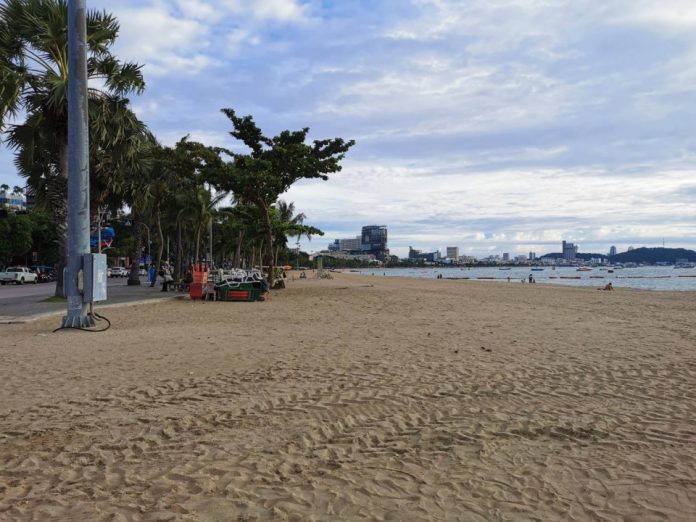By: Allan R.
Opinions inside are his own and may not reflect those of The Pattaya News Co. LTD. The following is a submitted guest opinion editorial. Submissions are accepted at pattayanewseditor@gmail.com.
The words ‘there is no going back’ are used more frequently and with more finality as the days wear on into the new world that’s been created by the emergence of COVID-19. There will be no ‘getting back to normal’ in Thailand or anywhere else.
What the future holds is in question. Some say COVID-19 is just the first pandemic of its sort with more to come in the future. Life, travel, tourism, retirement and international education has changed, probably permanently.
Question: Tourism is being decimated in Thailand, so how do we repair something that may be irreparable? Answer: You don’t. You move your resources into new areas while supporting the older existing ones but with new ideas and direction.

Shifting focus from the 2-week vacation crowd to the long stay crowd has already begun. TAT (Tourism Authority of Thailand) has issued a new “special tourist visa” which is a step in that direction but, it’s a band-aid solution, a test. Are they creating a new ‘exclusive’ class that will shut out the lower cost independent guesthouse owners? In my opinion it does. There needs to be more fresher ideas.
When I first traveled to Thailand in 2011 I arrived on a triple entry tourist visa. That gave me 90 days, plus utilizing 2 border runs to activate the other 2 entries I could stay for up to 270 days. That equals the new special tourist visa. So, in-the-end, this is not ‘new’ at all, it’s merely rolling back to a previously successful program but looking for more money from fewer people.
As most media and TAT have told us, the ‘normal’ number of tourists coming to Thailand in October is down from 3 million to 1,200. This is not sustainable for the millions of hard-working Thais who are unemployed for the foreseeable future. 1,200 long stay tourists will not help the 1,000s of restaurants, hotels, guesthouses and millions of unemployed maintenance, wait staff, bartenders and others.
So what do we do? What can Thailand do?
Shift focus from tourism to retirement. Not long stay but permanent stay (within some restrictions of course – still not citizens.) There are 1,000s and 1,000s of empty condos that should be in use. Rented or sold to ‘resident’ retired individuals from all the cold places in the world. But, the immigration rules would have to change, a lot.
I strongly agree with Thailand’s restrictions on foreign ownership of land which keeps the speculators at bay. My homeland, Canada, has been flooded with money (some money laundering) from outside its borders which has fueled a dramatic increase in housing costs to the point where a large segment of Canadians can no longer afford to live in Canada. Imagine paying 35,000 baht to rent an unfurnished 30 square meter condo or paying (low-end Vancouver) 15 million baht for that same unfurnished condo. How can Thailand entice the retired people from all over the world to come here and live here, not visit, but live here?
Change the rules.
Right now, the old rules no longer apply. The arbitrary number of a minimum income of 65,000 baht per month is unnecessary and restrictive. A frugal retiree can live quite well in Thailand for under 25,000 baht per month. Some can spend even less but, it would still mean 250,000 to 300,000 baht a year, per person, into Thailand’s beleaguered economy. Change the retirement visa to reflect that and extend it beyond the 1 year renewal to something like 5 years or even more. Make these older people feel like they’re at home.
What about health insurance?
Private health insurers work hand-in-hand with private hospitals who have both shown very recently that they are not above cheating the system for profit. The cost of private health insurance is, when over age 70, astronomical. So how can Thailand provide reasonable healthcare insurance? Colombia in South America has a model that works for the retiree and the health insurance companies there.
“Colombia has one public and many private health insurance plans. Public Healthcare Plan is called EPS (Entidades Promotoras de Salud) and it is administered by various companies such as SURA, Comfenalco, and Coomeva (Private healthcare insurers.) To qualify for EPS, you must have a resident cédula (identity card -which the holder of a retirement visa can obtain). The premium cost for retirees is 12% of what you declare your pension income is to EPS. There is no maximum age limit to apply for EPS coverage.”
12% of declared income. In Thailand’s case, if the minimum income for a 5 year retirement extension were set at 25,000 baht per month then the retiree would pay 3,000 baht (36,000/year) for full health coverage at all government medical facilities and private facilities that have government contracts and haven’t tried to cheat the system recently.
How can lower income foreigners secure their lives here?
One answer would be mortgages. I mean the kind of mortgage you’d see in Canada or the US. But in Thailand’s case, only condos or strata properties. Government insured (Canada uses an arm’s length organization call CMHC) mortgages with a 10% down payment with world standard mortgage rates (under 5% in Canada right now) amortized over 25-30 years. Thailand would draw millions of retirees under those circumstances who will spend billions of baht.
Imagine drawing 1 million retired people to Thailand who obey the laws, pay their bills, do not protest or demand rights from government, don’t get into fights in bars, get involved in shady deals, don’t use illegal drugs and are happiest when left alone to gaze at a sunset over the ocean. These are low maintenance people who have carved in stone incomes.
Most countries in the world want the rich to come to their shores. For every rich person there are 99 lower income people. One rich person might spend 2 million baht a year to support a lavish lifestyle here while the other 99 will spend 30 million baht per year living a quiet retired lifestyle. Which group will help Thailand the most? 1 wealthy individual or the other 99?
Can a person in their 70s live on 25,000 baht per month? Of course, they can. Just because the well-heeled choose to spend 600 baht on a steak dinner doesn’t mean others who are happy with a 60-baht kebab from a street cart are lesser people. Just because the well-heeled choose to buy an 8 or 10-million-baht condo doesn’t mean others who are paying 8,000 baht per month rent are lesser people.
It’s not complicated and it is also time for new thinking.




